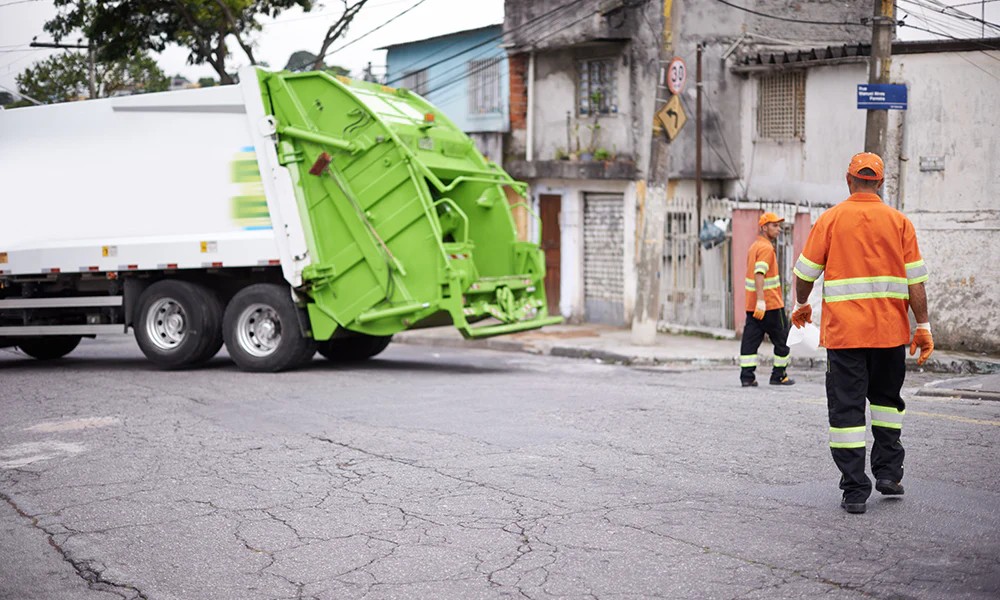Managing construction debris on large-scale projects can quickly become overwhelming without the right tools. Whether it’s a commercial build or a massive renovation, efficient waste disposal is crucial for keeping the site safe, organized, and on schedule. That’s where reliable dumpster rentals come into play.
Choosing the right dumpster rental service ensures debris is removed promptly, helping teams focus on what matters most—completing the project. With options tailored for heavy-duty demands, these services streamline waste management, saving time and reducing stress.
Benefits of Renting Dumpsters for Construction Debris
Renting construction debris dumpsters supports efficient project management on large-scale sites. These dumpsters accommodate varying waste volumes, reducing clutter and enhancing worksite organization.
- Improved Safety
Organized debris disposal minimizes hazards such as tripping risks or obstructed pathways during operations. Construction debris dumpsters provide a secure location for collecting heavy-duty materials, safeguarding workers on-site. - Time Efficiency
On-demand solutions streamline debris removal, saving workers from frequent trips to disposal facilities. Reliable providers like BrackenBox offer services tailored to the fast-paced timelines of large-scale projects. - Cost-Effective Waste Management
Renting a dumpster eliminates unexpected expenses linked to debris transport and disposal. Construction teams can better allocate budgets by choosing appropriately sized dumpsters for their specific needs. - Compliance with Regulations
Proper dumpster rentals help projects meet local disposal standards. Providers ensure safe handling of materials like concrete or metal, reducing legal complications related to waste management. - Environmental Impact Reduction
Materials like wood or metal can be separated for recycling, keeping waste out of landfills. Renting these dumpsters facilitates eco-friendly practices without slowing project progress.
Available Dumpster Sizes for Large-Scale Projects
Large-scale construction projects demand dumpsters capable of handling significant debris volumes. Reliable rental services, like BrackenBox, provide multiple dumpster sizes to accommodate diverse project needs.
- 10-Yard Dumpsters
Suitable for small-scale debris removal or site preparation. They hold materials like concrete and drywall for medium-sized projects. - 20-Yard Dumpsters
Ideal for moderate construction projects, housing debris such as roofing materials or wood. They provide efficiency for larger residential jobs. - 30-Yard Dumpsters
Designed for substantial debris like old structures or complete home renovation projects. These dumpsters allow optimal use for heavy construction jobs. - 40-Yard Dumpsters
Built to handle the highest volumes of debris, including demolition waste and bulky materials. These suit industrial sites or large commercial constructions.
Scalable rental options ensure debris containment, supporting seamless project execution. By aligning dumpster size to project requirements, users simplify logistics and enhance workplace efficiency.
How Flexible Rental Periods Support Construction Timelines
Flexible rental periods ensure project timelines are maintained by adapting to the varying durations of construction processes. Large-scale projects, such as commercial builds or multi-floor renovations, produce significant debris over extended periods. Contractors can align dumpster rental durations with project phases, avoiding the need for premature returns or extensions.
Adjustable schedules assist in managing unforeseen delays. Weather disruptions or supply chain issues may push back project milestones, but extended rental options allow uninterrupted debris removal. This minimizes workspace clutter and keeps the site organized.
Rental flexibility suits projects with fluctuating debris output. In demolition phases, debris peaks, requiring longer container retention, while final cleanup stages often demand shorter terms. Reliable services, including BrackenBox, ensure dumpsters are available through changing project needs. These adaptable terms reduce logistical stress, enabling construction teams to stay focused.
Common Construction Materials Suitable for Dumpster Disposal
Construction debris dumpster effectively manage various materials generated during large-scale projects. These dumpsters accommodate multiple types of debris, ensuring efficient removal and proper disposal.
- Concrete And Asphalt
Concrete and asphalt from demolitions or renovations are among the most common materials disposed of via dumpsters. Projects like paving, foundation work, or road construction often produce these heavy-duty materials.
- Wood Waste
Wood waste, including planks, beams, and pallets, frequently appears in construction debris. Framing, flooring, and scaffolding breakdowns typically result in this type of disposal need.
- Metal Scrap
Metal materials such as steel, aluminum, and copper can be efficiently collected using construction dumpsters. These items are common byproducts of structural reinforcements or piping installations.
- Roofing Materials
Roofing debris, including shingles, tiles, and underlayment, is suitable for disposal. Such waste originates primarily from re-roofing or new construction projects.
- Drywall And Plaster
Drywall offcuts or broken plaster from interior overhauls are easily cleaned up with dumpsters. Projects involving wall installations or remodeling generate significant quantities of these materials.
- Brick And Masonry
Bricks and other masonry remnants from demolitions or site clearances require robust disposal solutions. BrackenBox dumpsters handle these materials efficiently during large-scale builds.
- Insulation And Packaging
Insulation scraps and packaging waste, including empty cartons or plastic, are regular contents in construction dumpsters. These come from unpacking building materials or customizing spaces.
Construction debris dumpsters, such as those provided by BrackenBox, simplify the on-site disposal process by handling diverse waste types. This streamlines project management and ensures proper material recycling or landfill disposal.
Tips for Choosing the Right Dumpster Rental Service
Evaluate Project Needs
Determine the volume and type of construction debris the project will produce. Projects involving heavy materials like concrete or asphalt may require larger dumpsters, such as 30-yard or 40-yard options. Matching dumpster size to debris output avoids overpaying for unused capacity or frequent hauls.
Assess Rental Durations
Select a service offering flexible rental periods to align with project schedules. For large-scale projects, where construction timelines might vary, adaptable rental terms help prevent delays and ensure consistent debris removal.
Confirm Material Disposal Policies
Ensure the rental service accepts the specific types of construction debris the project will generate. Reliable services, such as those offering construction debris dumpsters, often manage materials like bricks, drywall, wood, and metal scrap while complying with disposal regulations.
Research Local Options
Look for companies with a strong local presence and proven reliability, such as BrackenBox. Local services can quickly respond to on-site needs, offer competitive rates, and provide familiarity with regional disposal laws to simplify compliance.
Evaluate Customer Support
Choose a service with clear communication, prompt responses, and transparent pricing. Effective customer support ensures smooth coordination, particularly for large-scale construction projects requiring frequent or varied dumpster usage.
Compare Pricing and Features
Examine costs alongside included features like dumpster delivery, pickup, and weight limits. Transparent pricing helps avoid unexpected fees, and services with robust features enhance convenience and efficiency.
Regulations to Consider When Disposing of Construction Waste
Proper handling of construction waste goes beyond convenience; it requires adherence to local regulations. Reliable dumpster rental services not only streamline debris disposal but also ensure compliance with waste management laws. This reduces legal risks and supports environmentally responsible practices.
By partnering with a dependable provider, contractors can efficiently manage materials like concrete, metal, and wood while meeting regulatory standards. Choosing the right dumpster rental service simplifies the process, keeps projects on track, and promotes sustainable construction practices.


